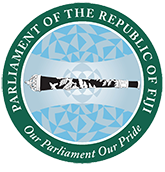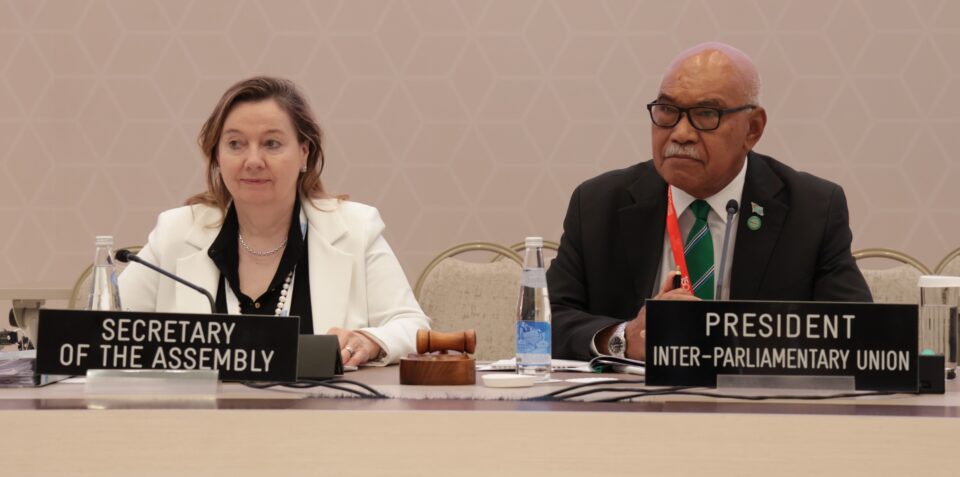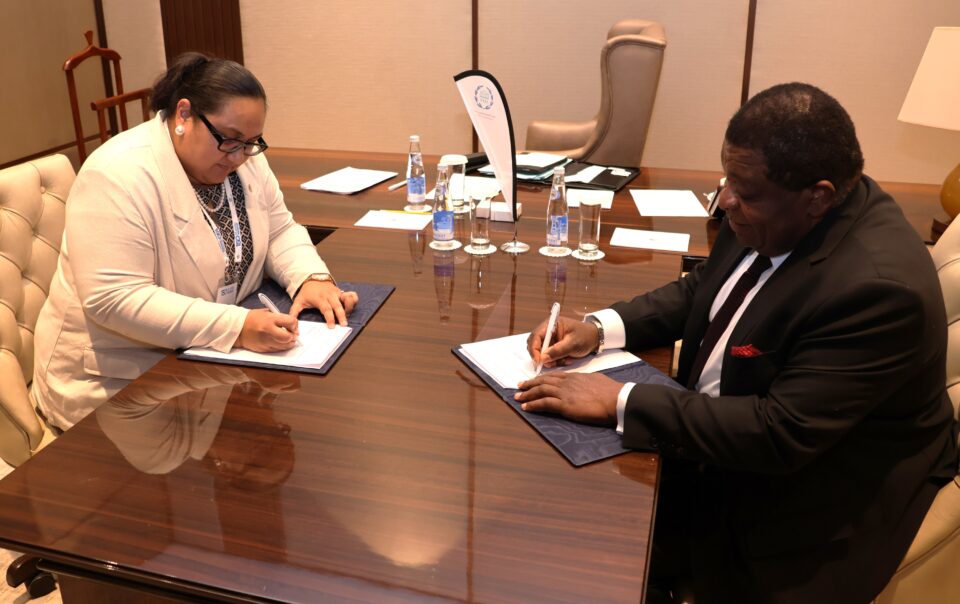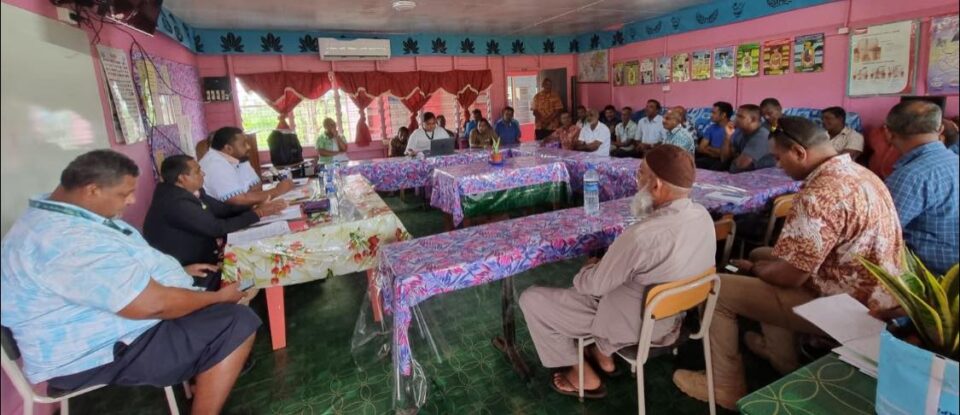Parliament’s role in strengthening democracy during the pandemic
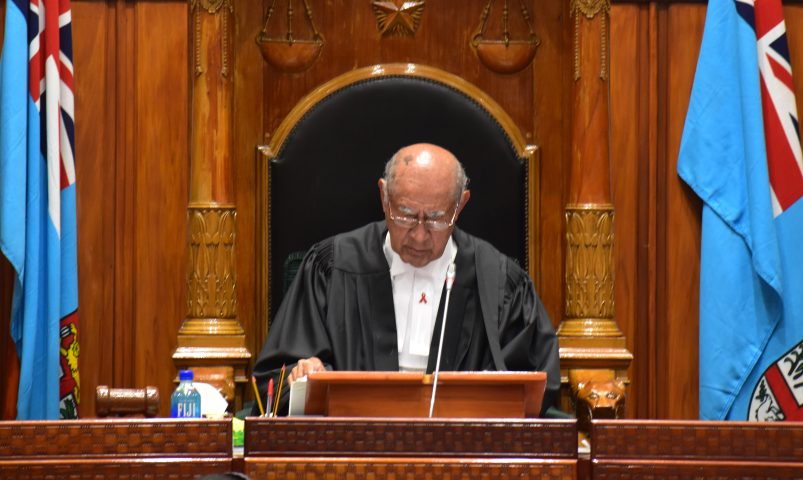
Greetings to all Fijians!
Today the 15th of September, the world celebrates the International Day of Democracy. The day was established through a resolution passed by the United Nations General Assembly in 2007, encouraging governments to strengthen and consolidate democracy.
This year I would like to share the idea of: Strengthening Democracy – Our Collective Responsibility to rise above any Crisis.
As the Speaker of the Fijian Parliament, I hold the view that good and effective Parliaments make stronger democracies. Democracy is a universal value and Parliament is the central institution that embodies this value.
Democracy is often threatened by conflict, wars, and disasters when citizens’ lives are disrupted and there is disorder in our communities. In such times, decisions are often made unilaterally and haphazardly by leaders or by those in power. The role of Parliament as the representative of the people – and their voice – becomes absolutely necessary when we face these calamities.
COVID-19 has posed many challenges around the world, and for small countries like Fiji, it has become an added burden in our ongoing efforts to address our key priorities like climate change adaptation, disaster mitigation and sustainable development. The pandemic has also impacted on our progress to achieve our national development goals and our efforts to meet our commitments to the achievement of the Sustainable Development Goals (SDGs).
It is vital that in the face of any challenge, be it local or global, that the institution of Parliament should continue to be strengthened to facilitate the work of good governance and nation building. It is also important that Parliaments continue to function effectively and efficiently in ensuring that the democratic process is not disrupted or put on hold.
Rising above the challenges of our time is a responsibility shared by all – institutions, leaders, the media, women, youths, civil society organizations and all members of our community. We have a common vision to transform our country for the better despite the many challenges of the COVID-19 pandemic. There are numerous experiences in the past that we can draw from, which were caused by nature or by other circumstances which displayed the resilience of the Fijian people despite the extent of destructions and hardships. Our ability to recover, adapt and restart our lives from tropical cyclones and other natural disasters is testament to our courage and resilience as a small island nation.
OUR PARLIAMENT
Strong Parliaments are the cornerstone of democracy and essential for development and recovery in any crisis. Parliament has three fundamental functions – representation, legislative and oversight. The Fijian Parliament plays an important representative function in that it represents all of us through our elected representatives. It also passes laws that are important to improving our welfare and enabling our society to work and prosper. Parliament also plays another important function, which is oversight – that is to hold the Government or the Executive to account.
The Fijian Parliament has transformed immensely since Fiji’s return to parliamentary democracy in 2014. Since then, more than 270 new laws and amendments to the laws were approved by Parliament. This year, 21 laws have already gone through the same process following parliamentary procedures. Parliament has also held Government to account through the work of the Standing Committees and as evident through question time and debates in the Chambers. Members of Parliament also bring important issues affecting the people they represent to Parliament through the sittings, Standing Committees, and other processes.
It is crucial to note that Parliament’s mandate provided under the Fijian Constitution is continually strengthened and supported through capacity development and innovation. It is important that Parliament functions effectively and efficiently in times of crisis such as the COVID-19 pandemic that is still wreaking havoc globally.
Parliament has persisted on with representation work, legislative agenda and oversight amidst COVID-19. It has ensured minimal disruption to its law-making, debate and national decision-making functions. It has ensured that consultations and decisions on the national response to COVID-19 is transparent to the public and inclusive.
These efforts have been facilitated by our e-Parliament initiatives where we have strengthened our ICT infrastructure and ensures that our work continues amid the lockdowns, social distancing and other restrictions brought about by the pandemic.
The strengthening of the Parliament’s ICT infrastructure and e-Parliament initiative has been complemented by investments in capacity-building for Members of Parliament and the secretariat staff.
These initiatives have enabled the machinery of Parliament to operate unhindered and have ensured citizens and stakeholders that they continue to access the work of the Standing Committees, the Parliamentary sittings, and other services.
An Inclusive Parliament – a vital part of Parliamentary democracy
Parliament as a key pillar of democracy and good governance need to ensure it represents the diversity of the society it is meant to represent. Inclusiveness is an important principle of democracy that Parliaments need to promote and reflect.
It is encouraging to witness the number of women Parliamentarians in the Fijian Parliament. Since 2014, there was an increase from 8% to 19% of our members of Parliament being women. Women comprised only 24% of election candidates in 2018. However, this was an increase from previous elections in Fiji where women made up less than 18% of candidates in 2014 and less than 9% in 2006. Proportion of seats held by women in Fiji increased from 4.29% in 1997 to 19.61% in 2020 growing at an average annual rate of 18.86%.
Since 2014, the Fijian Parliament has progressively worked to ensuring gender inclusiveness through its gender mainstreaming initiative. Amongst some of the key actions is the formation of an informal women members of Parliament group. In May 2019, the Fiji Group was established as an affiliate of the Commonwealth Women Parliamentarians (CWP) which has been part of the larger Commonwealth Parliamentary Association (CPA) since 2004. The CWP is an initiative of the CPA to further the representation of women, enhance their participation and promote their issues in Commonwealth Parliaments.
Parliament is also hopeful for an increase in youth representation in Parliament. We cannot solve the problems the world faces if part of the population that is most directly impacted by them is not part of the decision-making process. Half of the world’s population is under 30 and yet only 2.6% of MPs globally represent this age group. Youths make up around half of the Fijian population and the youth vote has become the largest in our national elections. More than half of those enrolled to vote in 2018 were aged 40 and under, and about a quarter were aged 30 and under. Political parties also fielded young candidates and many youths are active members of these political parties. It would be encouraging to see these figures correspond and translate into the number of seats in Parliament occupied by youths in the future.
Parliament has also ensured that its offices and services are accessible and safe for Fijians living with disabilities. Apart from elevator access and ramps at doors for different levels, the Fijian Parliament was one of the first institutions in Fiji to use sign language interpreters for the live airing of Parliamentary sittings, beginning in April 2017. The use of sign language interpreters is now being regularly used by television stations and other stakeholders for the hearing impaired.
Members of Parliament
Members of Parliament are elected by the people to represent the people. Fijians can engage with MPs to raise issues of concern to them and Parliament has ensured that they are accessible. Despite the pandemic, the internet and the new information and communication technologies have provided opportunities for Members of Parliament to have meaningful interactions with Fijians and vice versa; for Fijians to engage more with their Members. MPs and citizens alike need to embrace this new way of engagement particularly during such a crisis. The Fijian Parliament currently has 51 Members and the number will be 55 at the next general election. MPs and citizens have an equal responsibility to reach out to one another for ongoing engagement and consultations. We become stronger together and – weaker when apart – and that should bolster our resolve to always work together as a nation to tackle major crises and challenges.
The Standing Committees of Parliament are accessible to Fijians and provide an opportunity for our citizens to have their voice heard on important issues. Standing Committees have been able to continue their Parliamentary work amidst the second wave of the COVID-19 infections through virtual sittings and allowing citizens to present their submissions through live online hearings. The virtual hearings have been televised on the Walesi Parliament TV channel. Public access to Parliamentary affairs through virtual Committee inquiries or hearings began in April 2020 and continues today. I urge all Fijians to make use of these entry points to ensure continuous dialogue with their representatives in Parliament.
On this International Day of Democracy, I urge all Fijians to reflect on our collective responsibility to strengthen democracy, transform Fiji and rise above the crises we face as a nation and as part of the global community.
Happy International Day of Democracy!
HE Hon. Ratu Epeli Nailatikau
Speaker – Parliament of the Republic of Fiji

